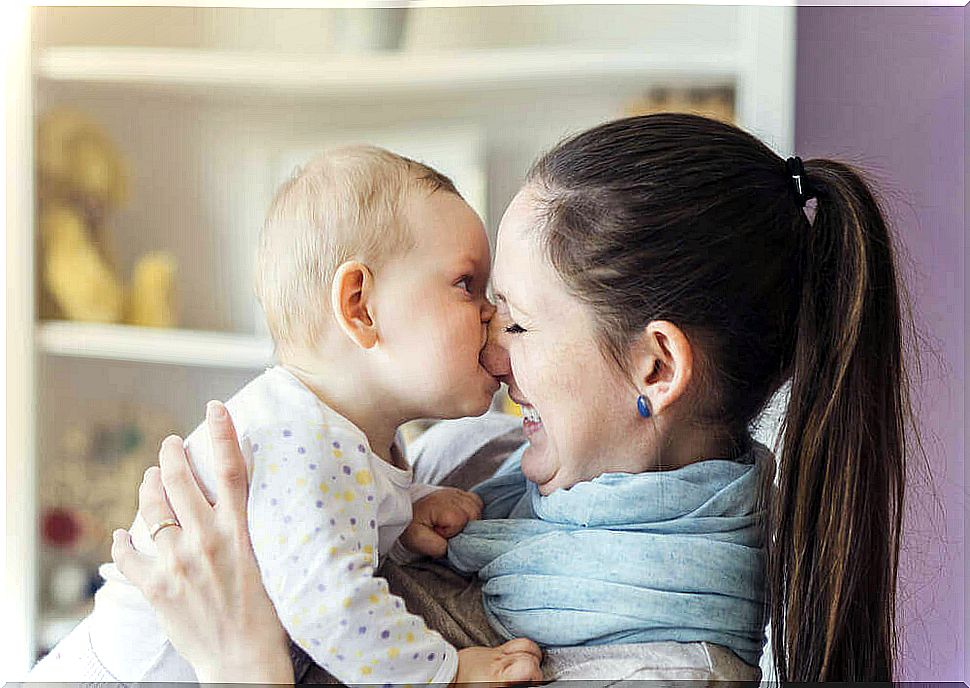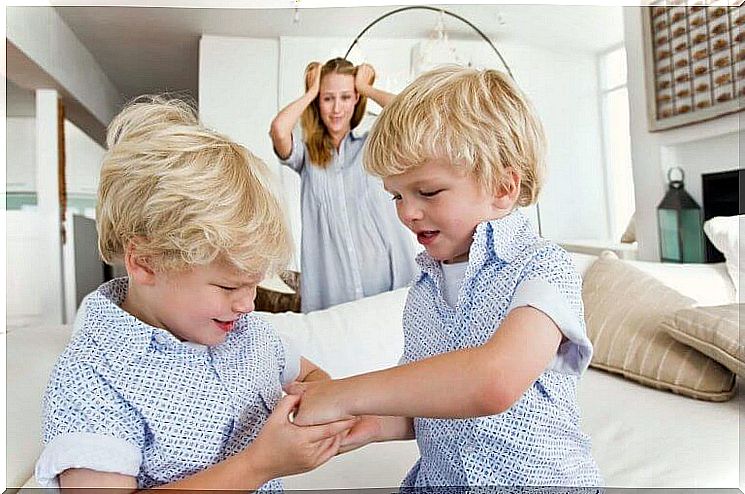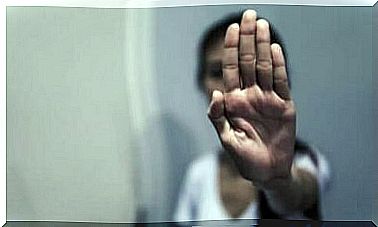How To React When A Child Bites

Between the ages of two to three years old, there is often a stage when a child bites. This happens when a child starts to have emotions that she didn’t have before (such as anger, frustration or jealousy) and doesn’t know how to channel them.
While it may not be a serious problem, it can still be very common. A child does not know how to correctly express how she is feeling, so she does this by biting.
Why does a child bite?
Understanding what is behind this behavior is key to getting your child to stop this aggressive behavior. Generally, it happens when a child is under the supervision of a stranger or out of sight of her parents.
However, sometimes a child bites her siblings or her parents. Biting is an expression of something and it is important to find out what that something is. A child bites because of a situation at home, which could be one of the following:
- The loss of a close relative or parent.
- The arrival of a new baby, which causes jealousy.
- Parting.
- A move or a new environment that is unknown.
- Witnessing other violence within the family.
- She feels frustrated, lonely or helpless.
- A child needs affection or more freedom.
- She is upset or overstimulated.
- She bites in response to being bitten herself.
- A child may even bite to express love.
- Biting can also be an expression of anger or fear.
What should you do if a child bites?

Just as it is common to have a child who bites at a young age, she will likely stop when she gets older.
Knowing that this is a common problem does not reassure the parents of a child who exhibits this behavior, let alone the parents of the child who has been bitten.
If you find yourself in the situation where you see your child bite someone or have a teacher tell you that this behavior has occurred, we recommend that you follow some of the tips below. It is best to help your child overcome this phase as soon as possible.
Take care of the bitten child, without ignoring the biter
If the child has bitten another child, calmly and carefully check the child who was bitten and do not ignore the child who was guilty of this act.
- Go to the victim first and make sure she doesn’t need medical attention.
- Make sure the child exhibiting this behavior recognizes that the biting isn’t getting your attention.
- You need to involve the child in taking care of the victim so that she can see that her action has caused pain and damage.
Don’t treat her with cruelty, this will only make her close to you and make her unwilling to explain why she behaved that way.
Keep calm and don’t punish her
While it’s easy to get carried away with anger when you see this aggressive behavior, you need to stay calm. A violent response, extreme reprimands, or punishments will only fuel the anger and frustration that the biting provoked in the first place.
In a few gentle, calm words, explain to the child that biting hurts and that she should not repeat the behavior no matter how angry she is.
Talk to your child about how to act when she is angry

Teach your child that if she feels angry she should seek help from the nearest adult. Biting is common in nurseries and playgroups. You must teach your child to express her feelings to the teacher or counselor first.
For example, if another child takes a toy away from her, she should learn to tell the child that she doesn’t like what she did. Then they should notify the teacher so that they can resolve the situation.
It is very important that you also talk to the teacher or manager. You need to know how they handle aggressive or angry situations between the children they care for.
Use positive reinforcement
Reinforcing positive behavior is much more effective than focusing on aggressive behavior. After the age of three, children begin to enjoy the company of their peers.
When she is quietly playing with friends, praise her good behavior: “Look how much fun you are playing with your girlfriend! You are so sweet!”
At the same time, talk to her about biting. While eating, explain why we bite into things like bread and fruit and why she shouldn’t bite her friends.
Never bite a child
Some people think that if they bite the child back, their child will understand that biting is painful. Nothing is less true. Instead, a child will learn that it is an acceptable way to express her anger.
The example you set your child is stronger than anything you can teach her. Never bite your child, even as a joke.
Watch and intervene
As a child learns to control himself, you need to be alert to the factors that trigger biting. This allows you to see what situation could cause this and prevent it from happening in the first place.
The moment you see that your child is about to bite someone, you have to be strict. Without losing your cool, you take her out of the situation. Explain why what she’s doing is wrong : “It’s wrong to bite and I won’t let you bite your girlfriend. ”
The conclusion
The most important thing is to let your child know that you love her.
The love you show to your child will help her express the feelings that were the reason for the biting and her loss of control. You must be clear that you disapprove of this behavior, but that you will never stop loving her.








